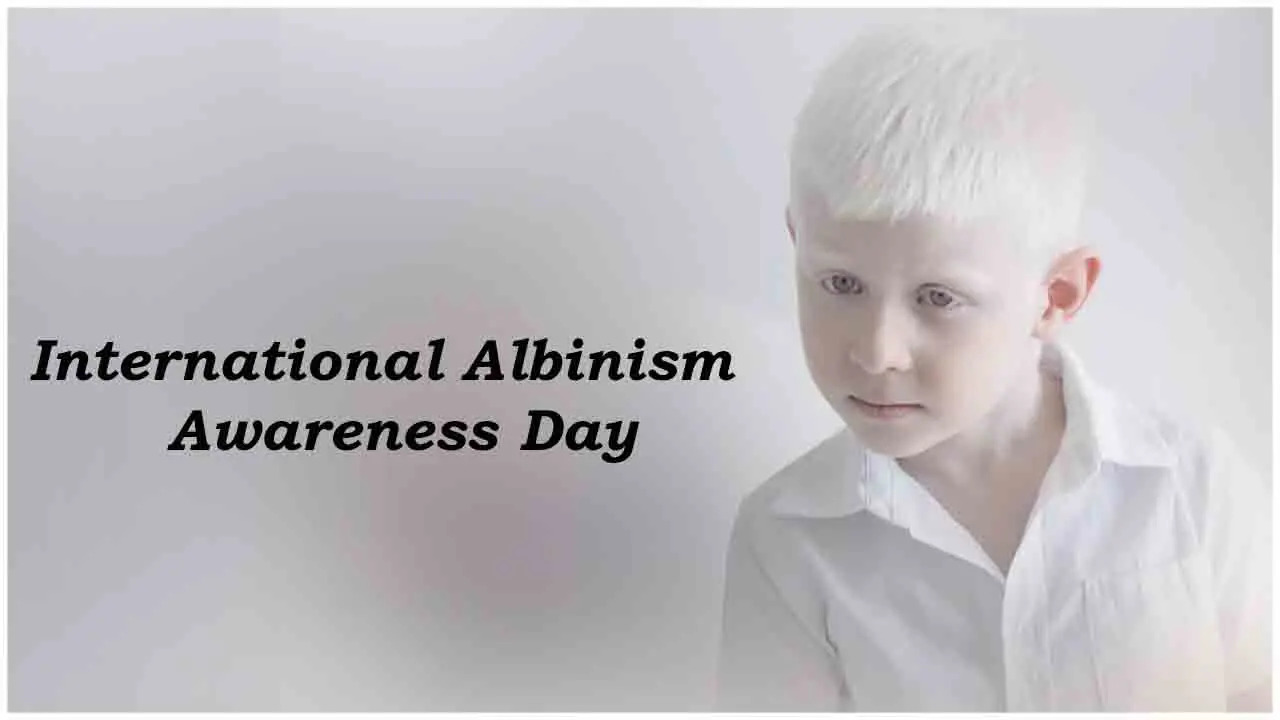Every year on June 13th, people around the globe come together to observe International Albinism Awareness Day. This day serves as a platform to raise awareness, promote understanding, and celebrate the uniqueness of individuals with albinism. It's an opportunity for society to embrace diversity, challenge misconceptions, and advocate for the rights and well-being of those living with this genetic condition.
What is albinism?
Albinism is a genetic condition that affects people of all ethnic backgrounds, regardless of gender or geographical location. It is characterized by a lack of pigmentation (melanin) in the hair, skin, and eyes, leading to light-coloured hair, very pale skin, and often, visual impairments. People with albinism face various challenges, including increased susceptibility to sunburn, vision problems, and social stigma due to misconceptions and stereotypes.
Understanding the Experiences of Individuals with Albinism
1. Discrimination and Stigma
In many cultures, people with albinism are viewed as cursed or inferior, leading to exclusion, marginalization, and even violence. In some African countries, for example, witch doctors promote the belief that body parts of people with albinism have magical properties, leading to a rise in attacks and killings.
2. Education and Employment
In many countries, schools and workplaces are not designed to accommodate the visual impairments and other challenges faced by people with albinism. As a result, they may struggle to access education and employment opportunities, leading to economic disadvantage and exclusion.
3. Visual impairments
Albinism can also cause various visual impairments, including photophobia (sensitivity to light), nystagmus (involuntary eye movement), and strabismus (crossed eyes). These impairments can make it difficult for individuals with albinism to perform everyday tasks, such as reading, writing, and driving. Moreover, the lack of pigmentation in the iris can result in reduced visual acuity, making it harder to see in bright light or at a distance.
4. Danger of skin cancer
People with albinism are also at a higher risk of developing skin cancer. The lack of melanin in the skin makes it more vulnerable to damage from UV rays, leading to an increased risk of sunburn, skin damage, and skin cancer. This risk is particularly high in regions with high levels of UV radiation, such as Africa, where the incidence of skin cancer among people with albinism is estimated to be up to 100 times higher than in the general population.
Shining light on how to create awareness for albinism disease
1. Promoting Inclusion and Education
• International Albinism Awareness Day serves as a reminder to prioritize inclusive education that addresses the needs of individuals with albinism.
• By ensuring access to quality education, we empower them to reach their full potential, contributing their talents to various fields and debunking stereotypes that limit their opportunities.
2. Rights and awareness
• International Albinism Awareness Day serves as a platform to advocate for their rights, raise awareness about these injustices, and work towards eradicating discrimination and violence.
3. Empowering Individuals with Albinism
• One of the key objectives of International Albinism Awareness Day is to empower individuals with albinism to embrace their uniqueness and confidently pursue their dreams.
• By providing support networks, access to resources, and promoting positive role models, we can empower individuals with albinism to overcome obstacles and thrive in all aspects of life.
International Albinism Awareness Day serves as a beacon of hope, promoting inclusivity, understanding, and acceptance. It urges us to recognize and celebrate the diverse talents and capabilities of individuals with albinism, while also addressing the challenges they face. By raising awareness, challenging stereotypes, and advocating for their rights, we can work towards a more inclusive world where everyone is valued for their unique contributions. So, let us shine a light on International Albinism Awareness Day and join hands in creating a society that celebrates diversity and embraces the beauty of differences.

 It is important to raise awareness of these challenges and work towards creating more inclusive and supportive societies that value and empower individuals with albinism. let’s delve into the significance of International Albinism Awareness Day and shed light on the experiences of individuals with albinism.
It is important to raise awareness of these challenges and work towards creating more inclusive and supportive societies that value and empower individuals with albinism. let’s delve into the significance of International Albinism Awareness Day and shed light on the experiences of individuals with albinism.









.jpeg)








.png)
.png)

.png)
.png)
.png)

.png)
.png)
.png)

.png)
.png)